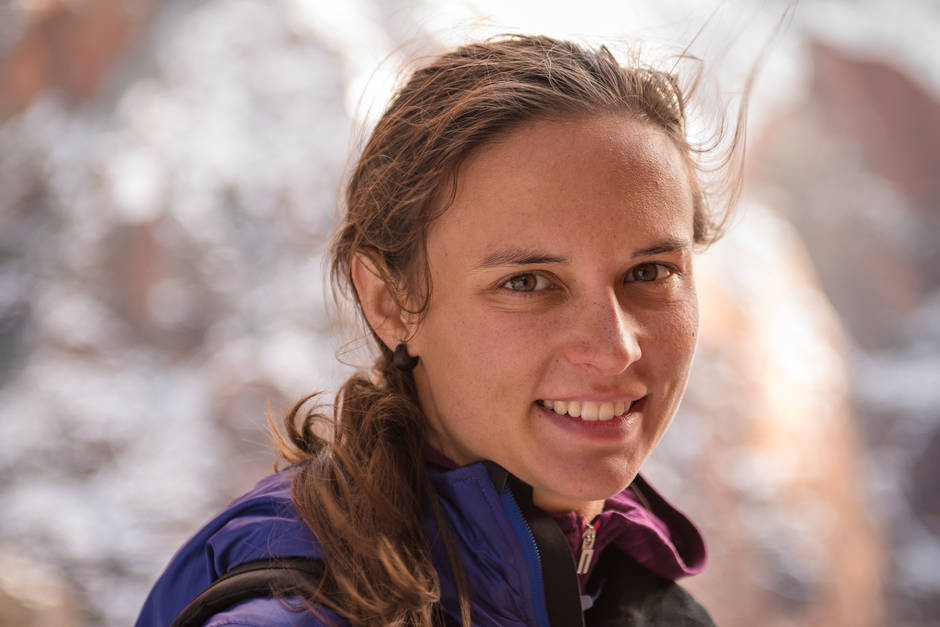Andrea Morgan, Canada
Second year ISE student conducting thesis research in Canada
Name: Andrea Morgan
Age: 25
Hometown: Calgary, Canada
Academic Background: B.Sc. in Geology, University of Calgary, Canada
Major & Class: Sustainable Energy, Class of 2018
Location of thesis research: Quebec City, Canada
What thesis research are you conducting?
My
thesis project will be an evaluation of the potential to use flooded abandoned
mines in the Chapais and Chibougamau Municipalities of Central Quebec as a
source of low temperature geothermal heat for the nearby communities. In order
to do so, I will be conducting fieldwork, creating geological models of the
sites, and doing numerical modelling to track heat flow within the reservoirs.
Heat extraction simulations will be conducted in order to optimize the heating
and cooling systems, and the profitability of the projects will be assessed.
What do you hope to accomplish?
As the water that has flooded the mines is very low temperature (6-8°C), it would normally not be considered as a potential source of geothermal heat. I hope to show that, by using heat pumps and high flow rates, it is a technically viable way to provide an environmentally friendly heating source. I am hoping that this resource will be economically feasible under current market conditions. If not, I will assess the external factors that dictate the profitability of such a process, and the conditions that must be met to make such a project competitive (e.g. increases in current heating costs, decreases in the cost of heat pump technology, minimum reservoir temperature requirements, etc).
What motivated you to travel and study in Quebec City, Canada?
This project initially caught my interest because of its ability to make the use of geothermal energy feasible in areas that do not have traditional geothermal resources. Geothermal power, while an environmentally friendly and reliable energy source, is technically and economically limited to areas that have favorable geothermal conditions - for example, areas with divergent plate boundaries, or localized mantle hot spots. The use of lower temperature resources as a heat sources is becoming more common, but temperatures considerably higher than what are found in these mines are usually required. If this project shows that temperatures as low as 6-8°C can be viable as a heat source, this would open up the prospects of geothermal heating to considerably more of the world, hopefully reducing the need to depend on hydrocarbons and other environmentally damaging technologies for our heating requirements.
How did you discover your thesis opportunity?
The Program Director here at ISE, Dr. Juliet Newson, put me in touch with Dr. Jasmin Raymond, a hydro-geologist and professor at INRS in Quebec. After some discussion, Dr. Raymond agreed to be my supervisor.
What are you most excited for during your time there?
I am most excited for the opportunity to work on a thesis project that may have the potential to help bring geothermal heating options to remote communities without traditional geothermal resources. My supervisor, Dr. Raymond, is very experienced in this field and I am looking forward to learning from him.
Furthermore,
I am excited by the prospect of living in a new city which, while in my home
country of Canada, has a different language and culture than that to which I am
accustomed.
What do you expect will be your biggest challenges?
One of the largest challenges I will likely encounter while working on my thesis is the difficulty of having French as the primary language of communication. Though my supervisor speaks excellent English, interaction with the other students and with members of the community will be in a second language for me, which may pose some (hopefully surmountable) obstacles.
How will your research abroad compliment the rest of your studies with ISE?
The first year of my studies at ISE allowed me to take courses in a variety of different subjects, from geoscience, to market economics, to statistical programming. This thesis project will allow me to combine the knowledge I have gained in the classroom, and apply it to the challenges of providing inexpensive, environmentally friendly, reliable energy to rural communities.
Photo courtesy of Lucas Jungmann.

